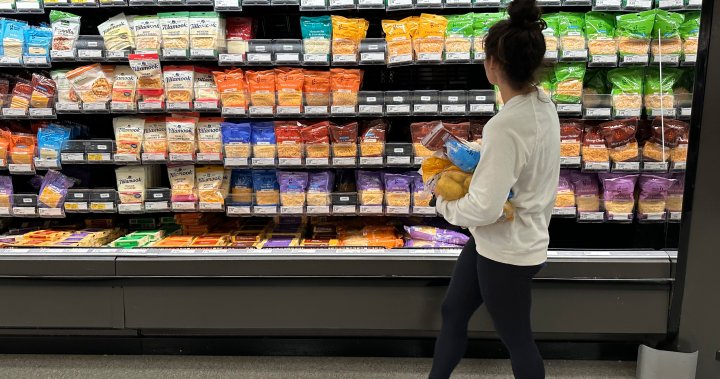A recent Leger survey found that nearly two-thirds of Canadians believe that inflation at the grocery store is worsening, despite the fact that food inflation has been decreasing. The survey also revealed that 30% of Canadians believe that increased food inflation is primarily due to grocery stores attempting to boost their profit margins. Another 26% attribute it to global economic factors, while 20% blame the federal government. In April, inflation on groceries was 1.4%, contributing to an overall inflation rate of 2.7%. Over the past three years, grocery prices have risen by 21.4%.
Major grocery chains have denied profiting excessively from inflation, despite facing public and political scrutiny over the rising cost of food and other essentials. In response, a group of consumers organized a boycott of Loblaw-owned stores in May due to frustrations with higher prices and industry concentration. While 70% of Canadians are aware of the boycott, only 18% of respondents stated that they or someone in their household had joined it. The survey results also indicated differing views among rural and urban residents regarding the boycott, with urban residents more likely to support and participate in the boycott compared to suburban and rural residents.
A significant number of Canadians expressed concern about the fairness of targeting only Loblaw in the boycott, with nearly half of respondents believing it to be unjust. Additionally, almost two-thirds of those surveyed do not believe that the boycott will have an impact on grocery prices. Urban residents were more optimistic, with 75% believing that the boycott could help lower prices, while nearly three-quarters of rural Canadians thought it would not affect prices. The survey also found that urban boycott participants were more likely to shop at big box stores like Costco or Walmart, while rural participants favored independent local grocery stores.
The Leger survey, conducted from May 17 to May 19, gathered opinions from 1,519 Canadians on topics such as grocery inflation, the Loblaw boycott, and grocers’ profits. As an online survey, it was noted that no margin of error could be calculated since it did not use random sampling of the population. Despite the ongoing debate surrounding grocery prices and the impact of the boycott, the findings suggest that Canadians are divided on the reasons for food inflation and the effectiveness of the boycott in influencing prices. Retailers will need to navigate these differing perspectives and consumer behaviors as they address concerns over the rising cost of groceries.


